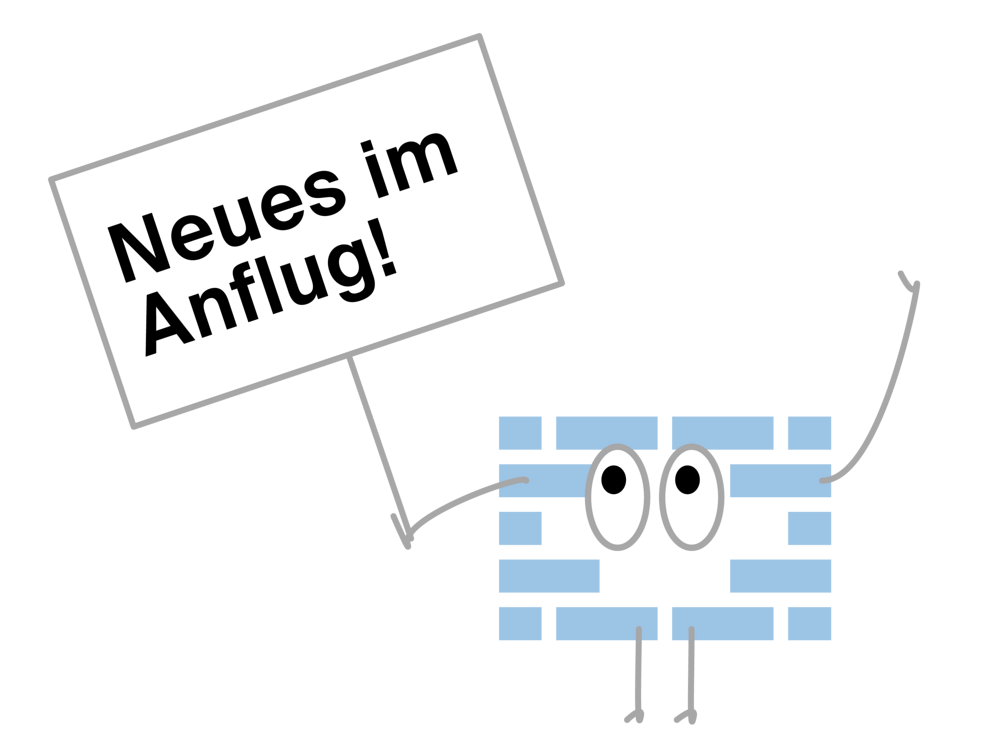Text
Open the box of 20 kg tofu. Place the three kilo bags on the work surface. Open with the cutter. Pack the tofu vertically onto a horizontal steel sieve. Drain off the brackish water. Start again from the beginning. For nine hours. In his verse novel, Joseph Ponthus skilfully blurs the boundaries between author, narrator and fictional character. So Ponthus himself stands at the conveyor belt and shovels his way through 40 tonnes of frozen shrimp the next day. He pushes shift after shift after shift, removing the smallest scraps of meat from the fine gears of enormous, hammering meat machines. The uniform repetition of brutal simplicity. The factory. One manual stroke resembles the next.
For two and a half years Joseph Ponthus goes to work on the assembly line. Packs ready meals. Sorts fish. At night, he cleans the blood and fat from the slaughtered animals in the pig cutting hall. However, he does this as an idealising tourist, convinced that he will be able to leave the factory when the time comes. For Ponthus remains at a privileged distance from which he gazes – sometimes transfigured, sometimes glorifying, but always in solidarity – at a place that uncompromisingly wears out the people who keep the factory belt turning. To withstand the extreme conditions, the former social worker takes his cue from his literary role models, forming his way through the brutal everyday life of the assembly line with romantic reflections. Then, almost tenderly and with a lot of humour, he reports on his time in the factories and on "his" workers. In this way, the narrator tries to give language not only to himself but also to the countless and invisible people who do not have the luxury of working only for a time in the modern slavery of the food industry. And he thereby combines the voice of the worker with that of the intellectual.
In his autofictional text Am laufenden Band, published in 2019 - which is at once a manifesto, a poem, a novel and an outcry – the French author Joseph Ponthus negotiates in a surprisingly positive way the part of labour of which we are all beneficiaries, but which is located in the blind spot of society. At the margins of our capitalism are the factories of mass production that supply countries with gram-perfectly packaged princess beans and pre-peeled prawns. But on whose shoulders do the luxuries that are taken for granted rest?
Director Tom Schneider, who has already staged Bilder einer großen Liebe and Die Hydra in Bochum, uses the award-winning novel as a basis for a theatrical-musical search for clues into the shadowy areas of our working world – and for what will remain of it.
Audio content
Information about the piece
- Am laufenden Band
- Aufzeichnungen aus der Fabrik
- based on the novel by Joseph Ponthus
- from the French by Mira Lina Simon and Claudia Hamm
- Director: Tom Schneider
- With: Dominik Dos-Reis, Michael Lippold, Karin Moog, Daniel Nerlich
- Place: Kammerspiele
- Duration: 1:30h, no break
- Premiere: 24.03.2023
- Language: DE
Information about the performances
Die letzte Vorstellung fand am 19.01.2024 statt.
Video content
Participants
- Director: Tom Schneider
All people
- Director: Tom Schneider
- Stage design: Nadja Sofie Eller
- Costume design: Andrijana Trpković
- Music, sound installation: Daniel Nerlich
- Light design: Sirko Lamprecht
- Light Design: Wolfgang Macher
- Dramaturgy: Marvin L. T. Müller
- Dramaturgy internship: Manuel Rechsteiner
- Assistant director: David Goldmann
- Assistant stage design: Fiona Marie Hennerkes
- Assistant costume design: Lasha Iashvili
- Internship costume design: Finja van Heek
- Soufflage: Fee Sachse
- Stage manager: Christina Baston / Nora Köhler
Cast
Images
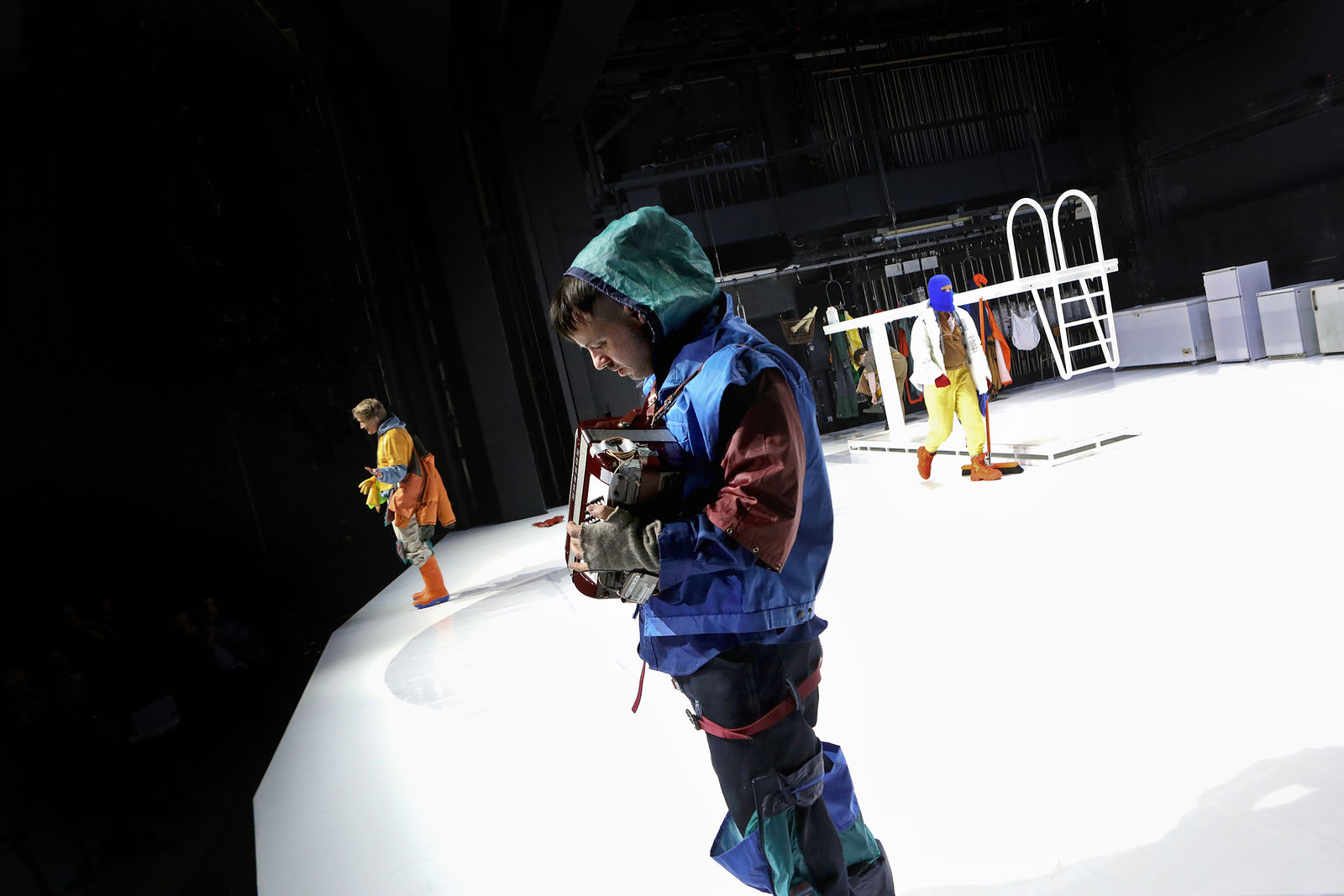
© Birgit Hupfeld
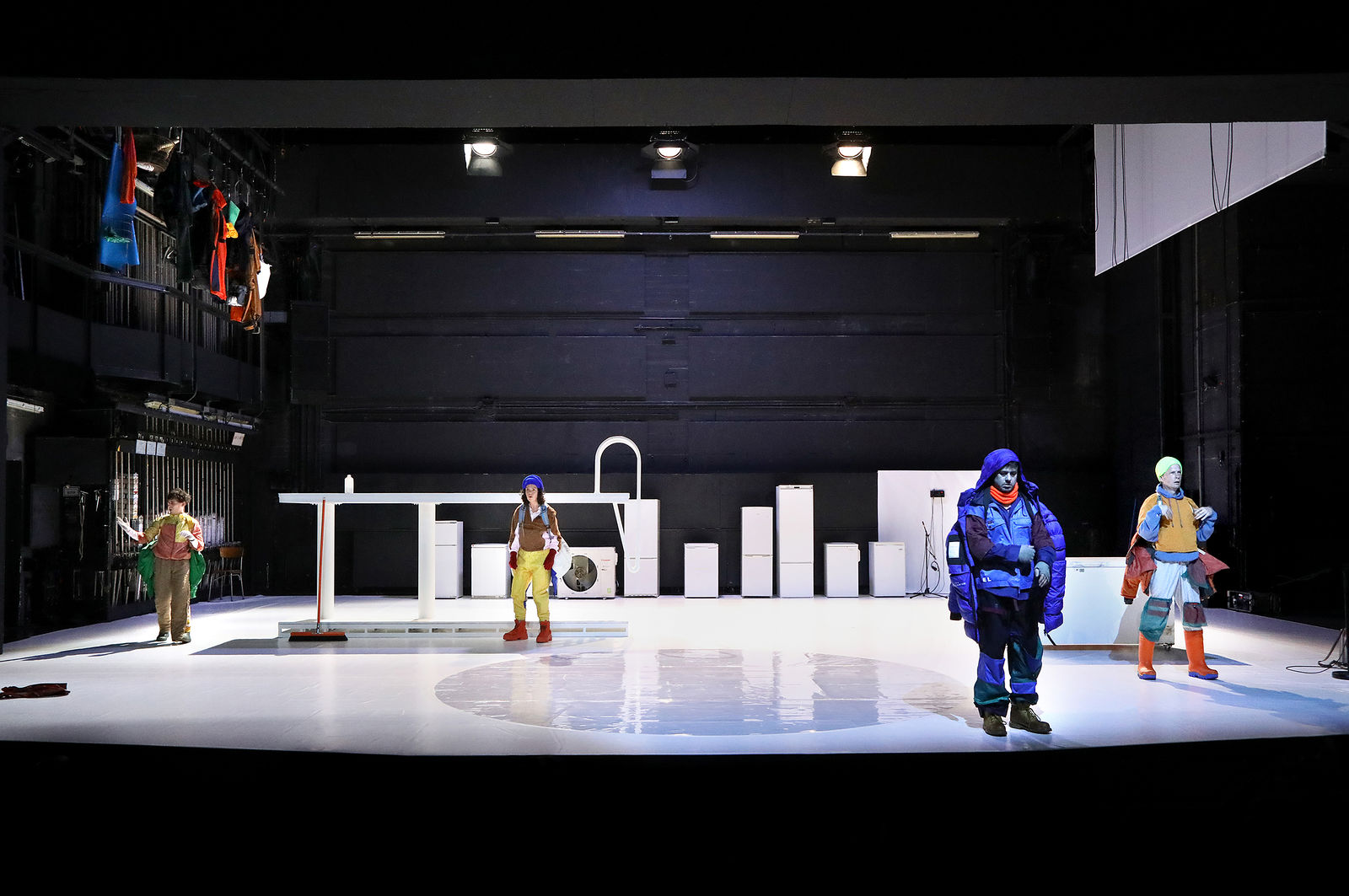
© Birgit Hupfeld
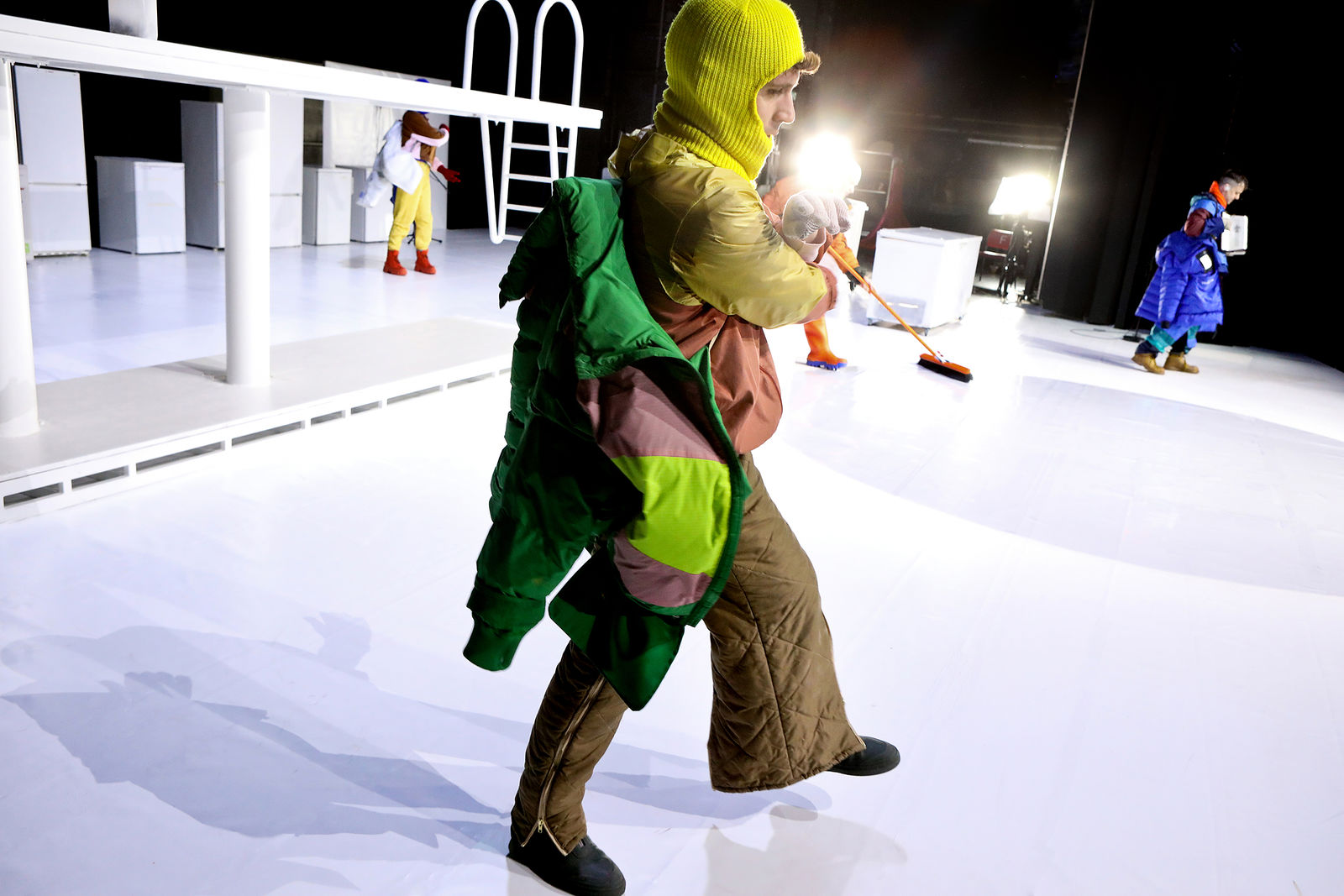
© Birgit Hupfeld
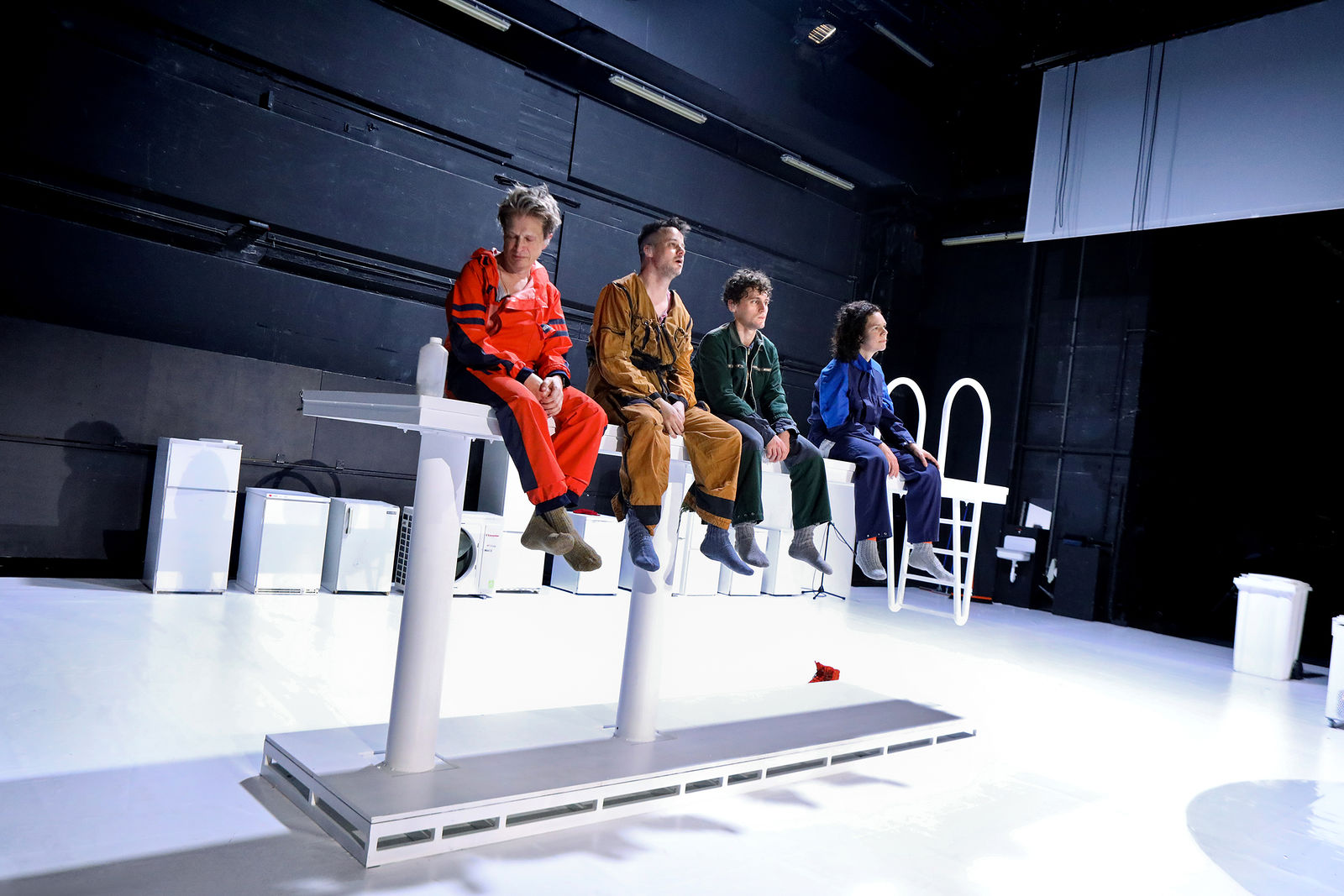
© Birgit Hupfeld
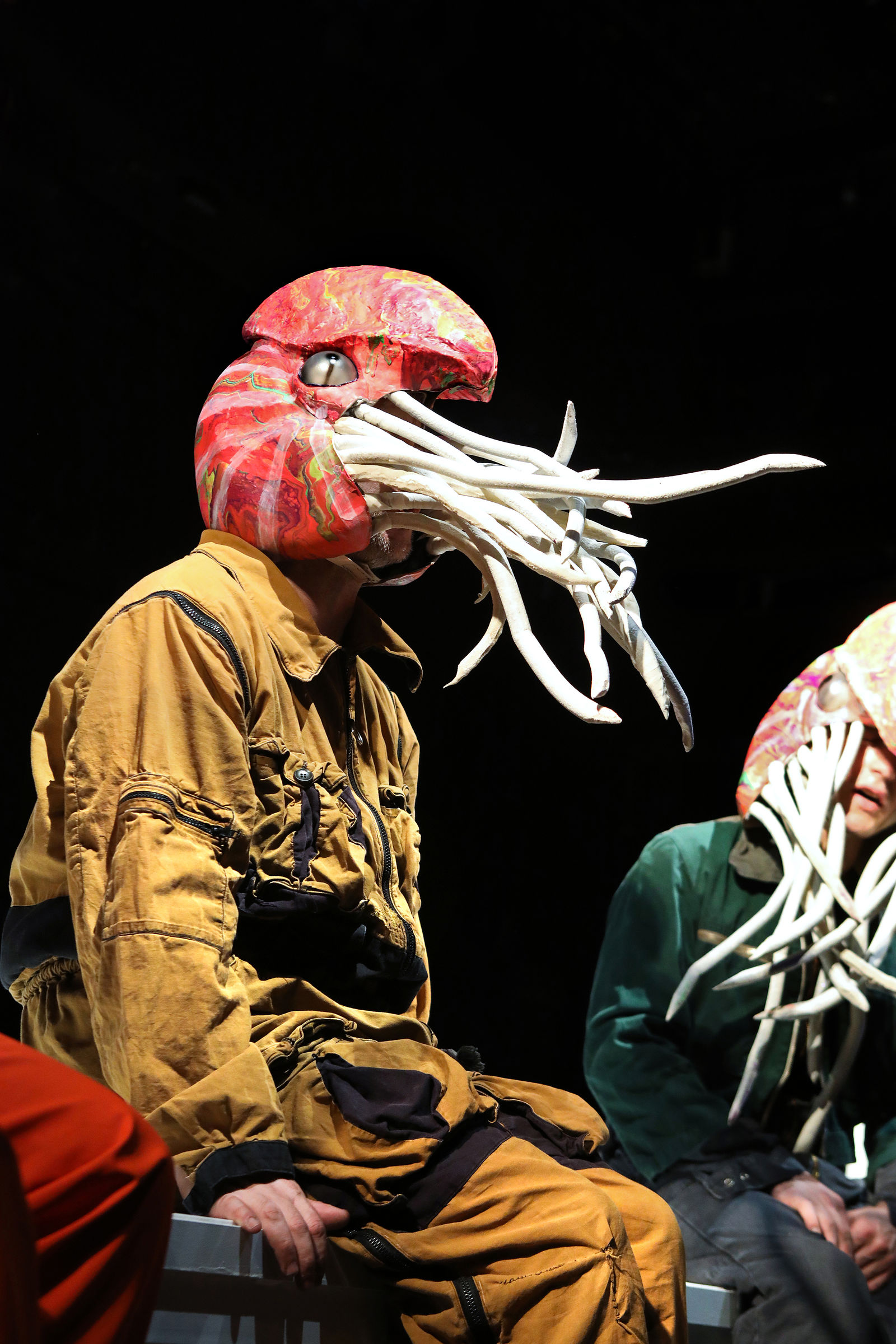
© Birgit Hupfeld
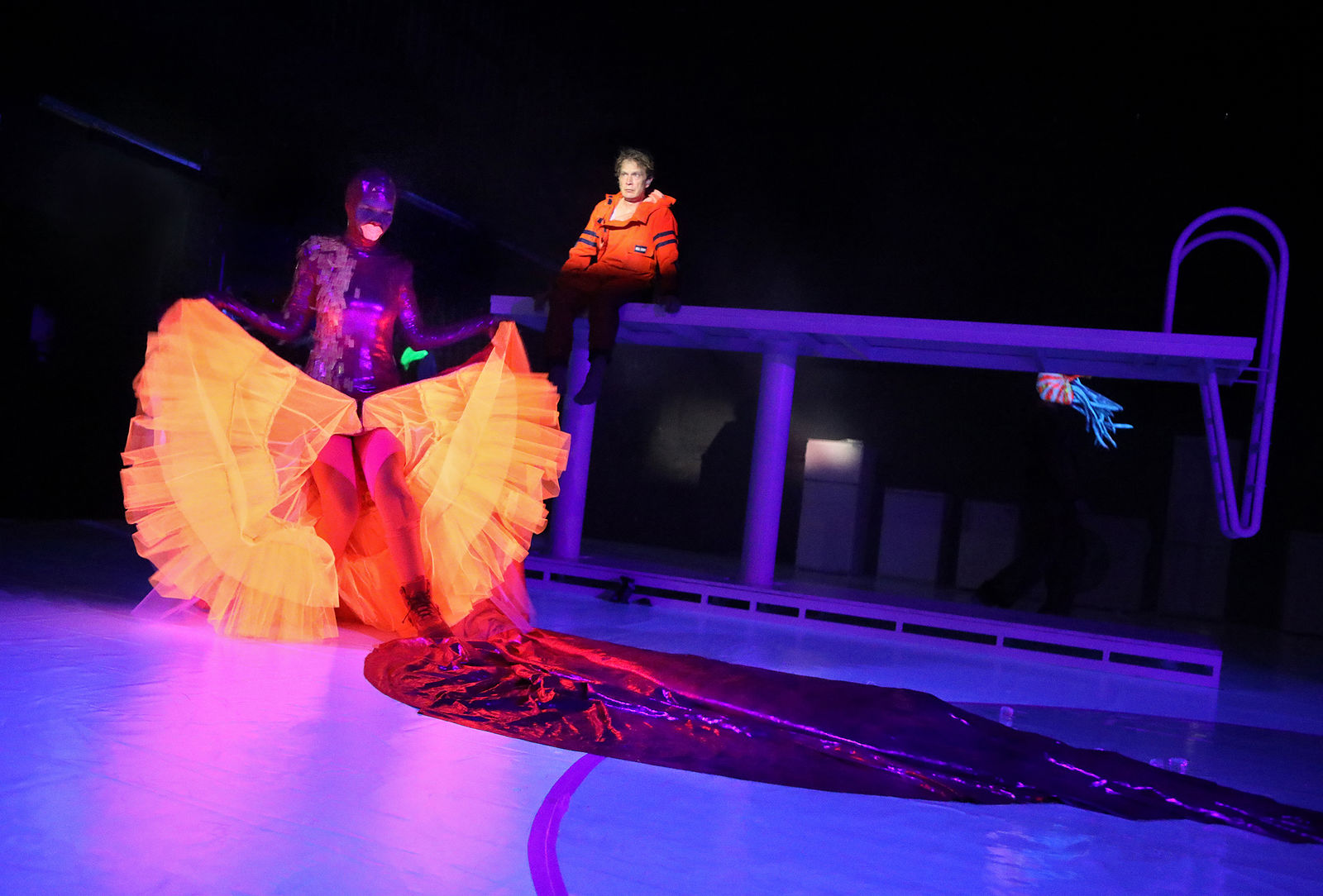
© Birgit Hupfeld
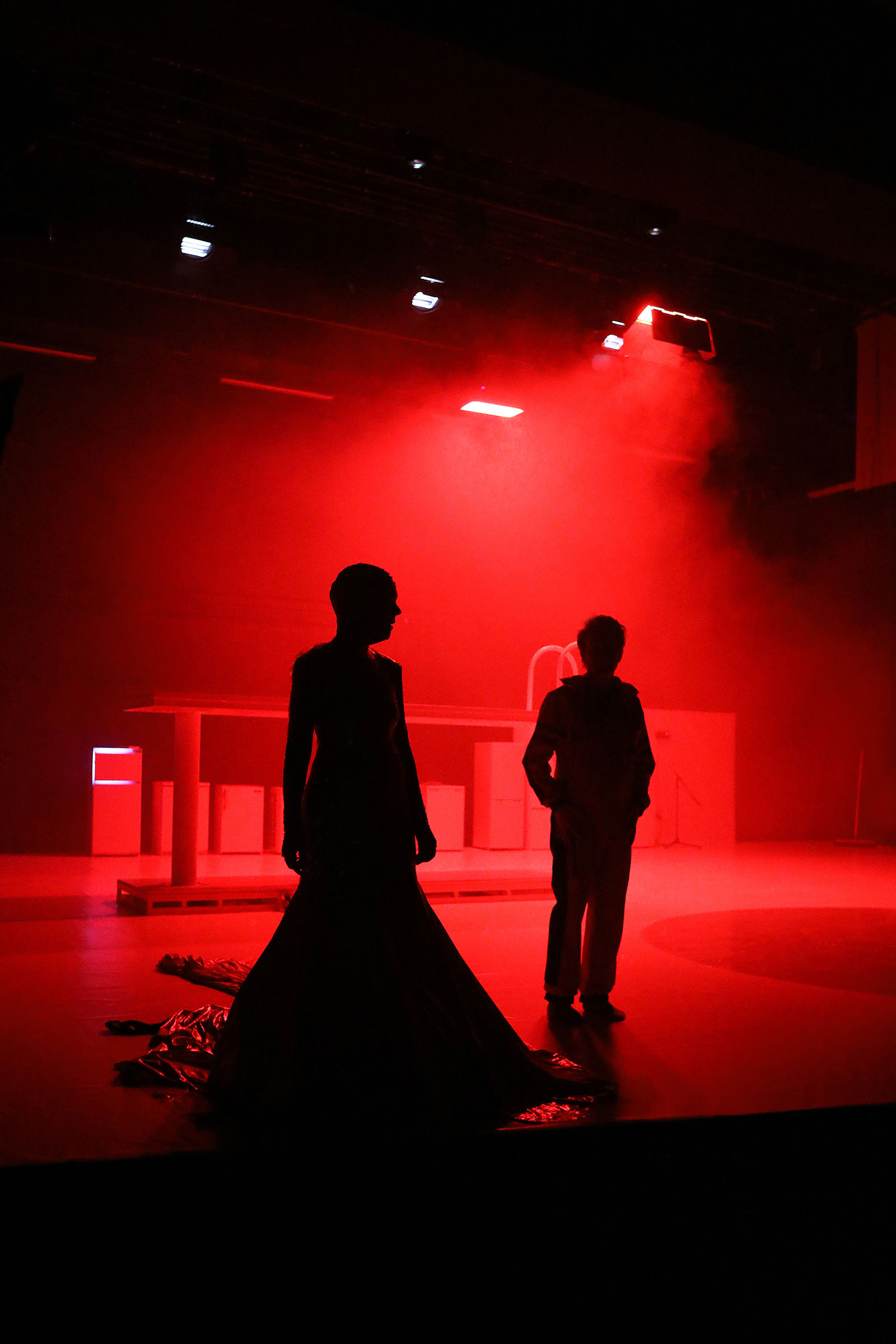
© Birgit Hupfeld
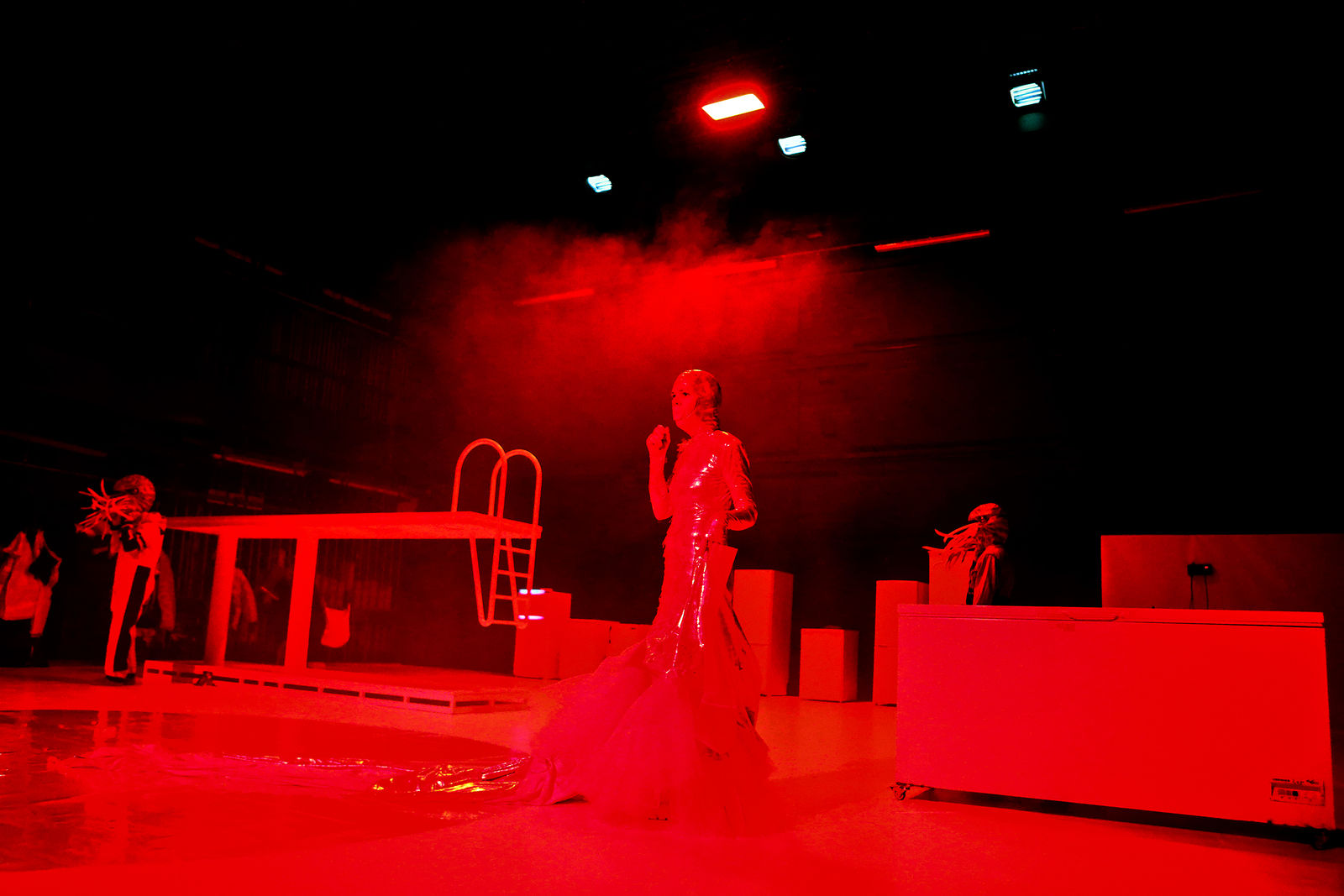
© Birgit Hupfeld
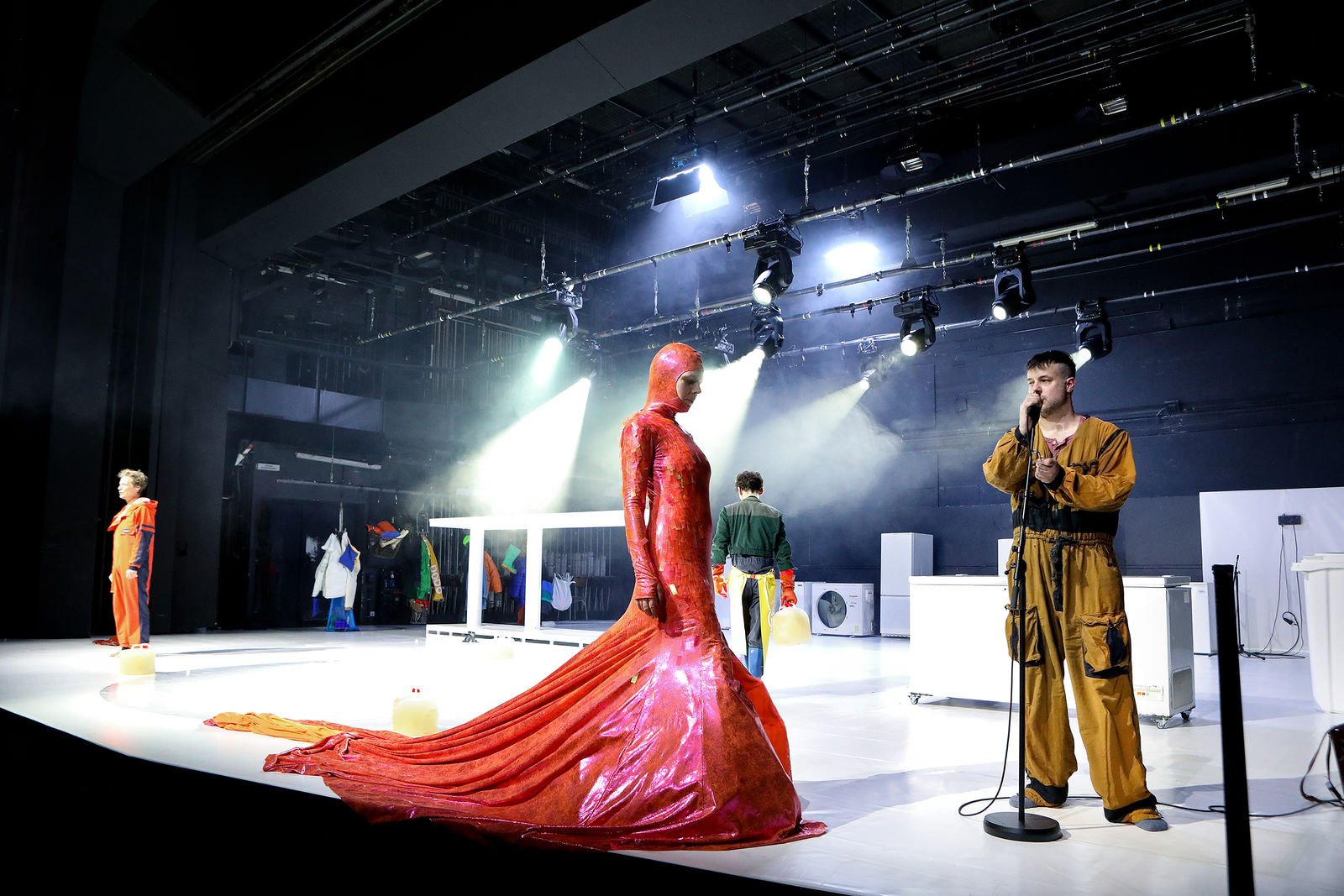
© Birgit Hupfeld
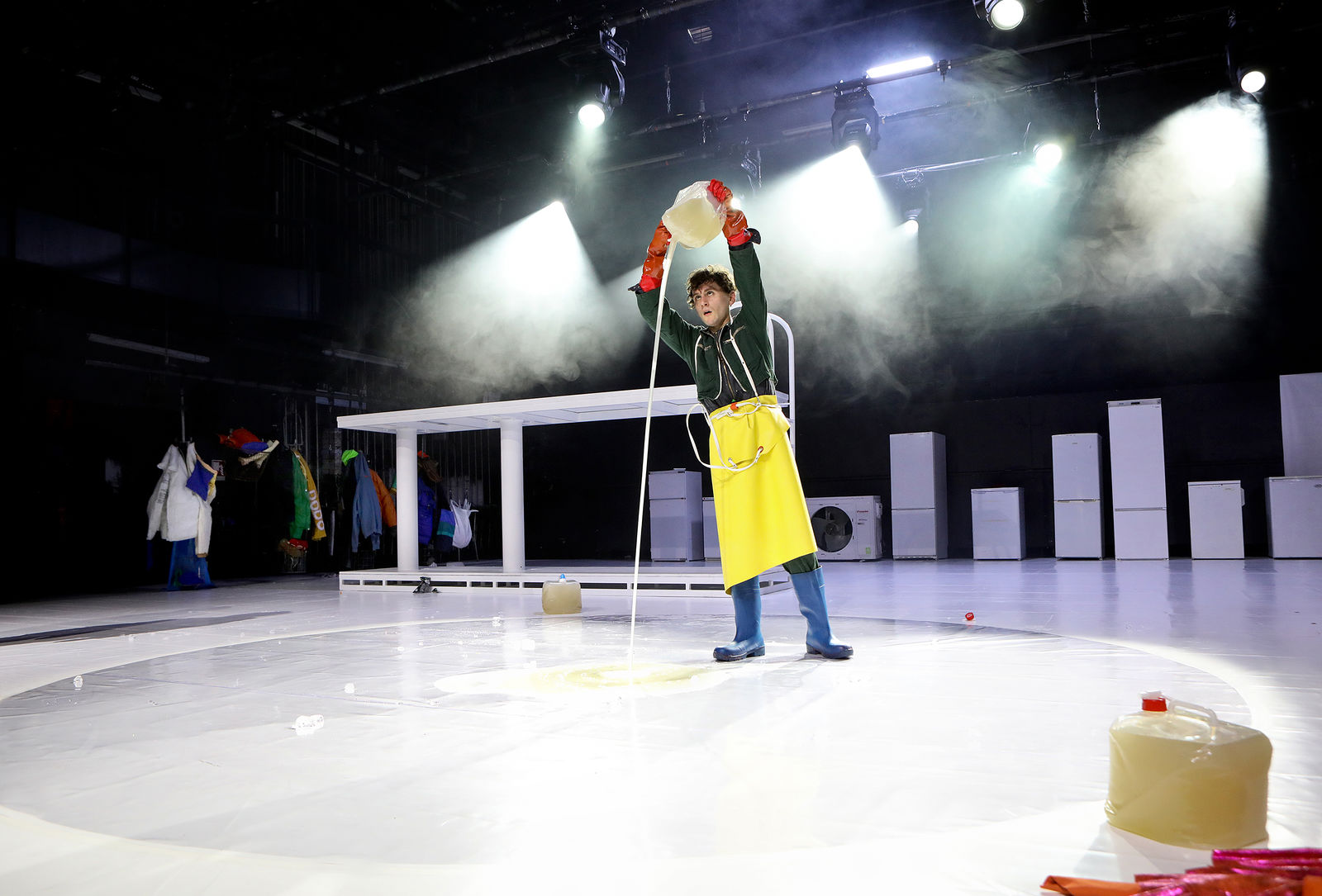
© Birgit Hupfeld
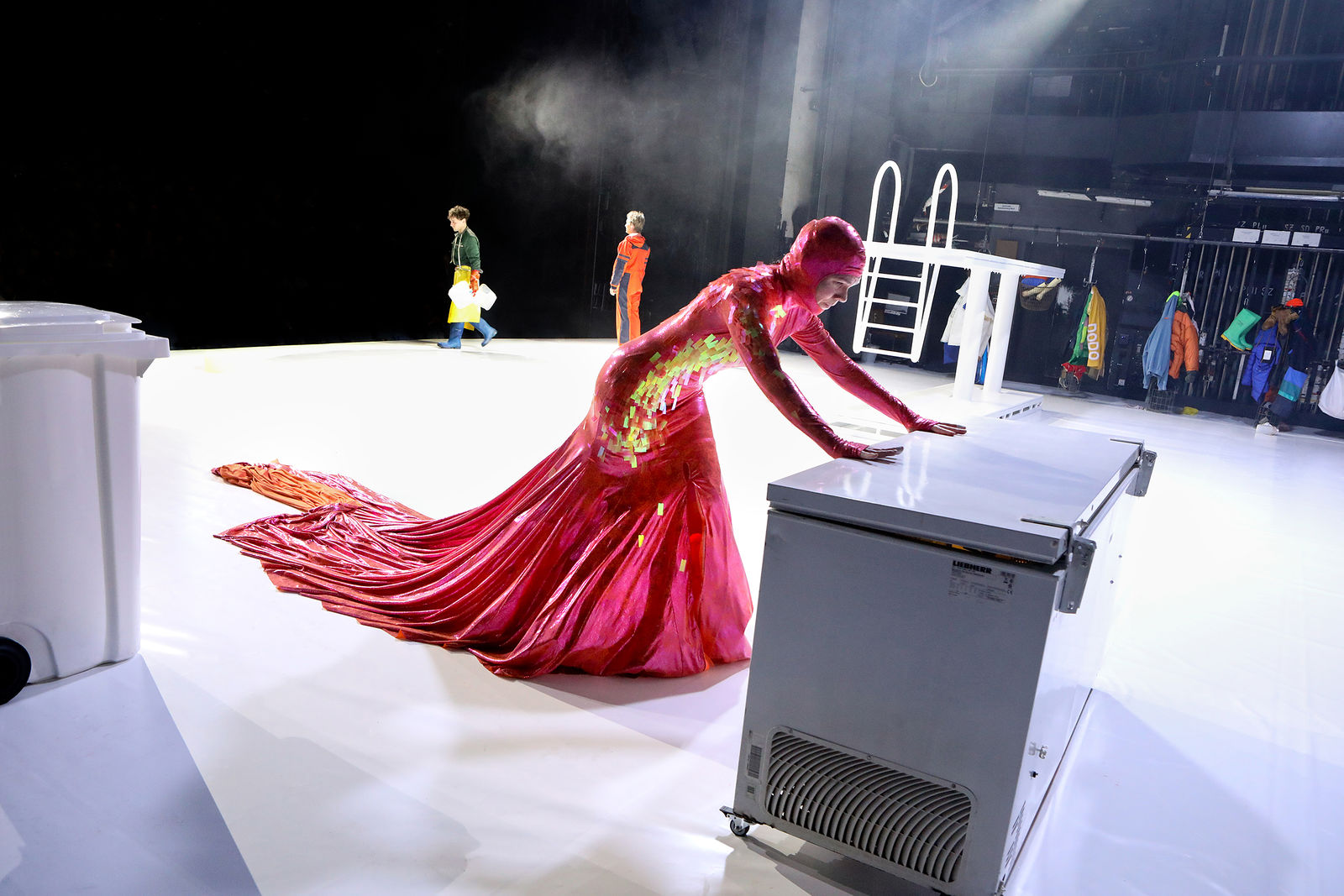
© Birgit Hupfeld
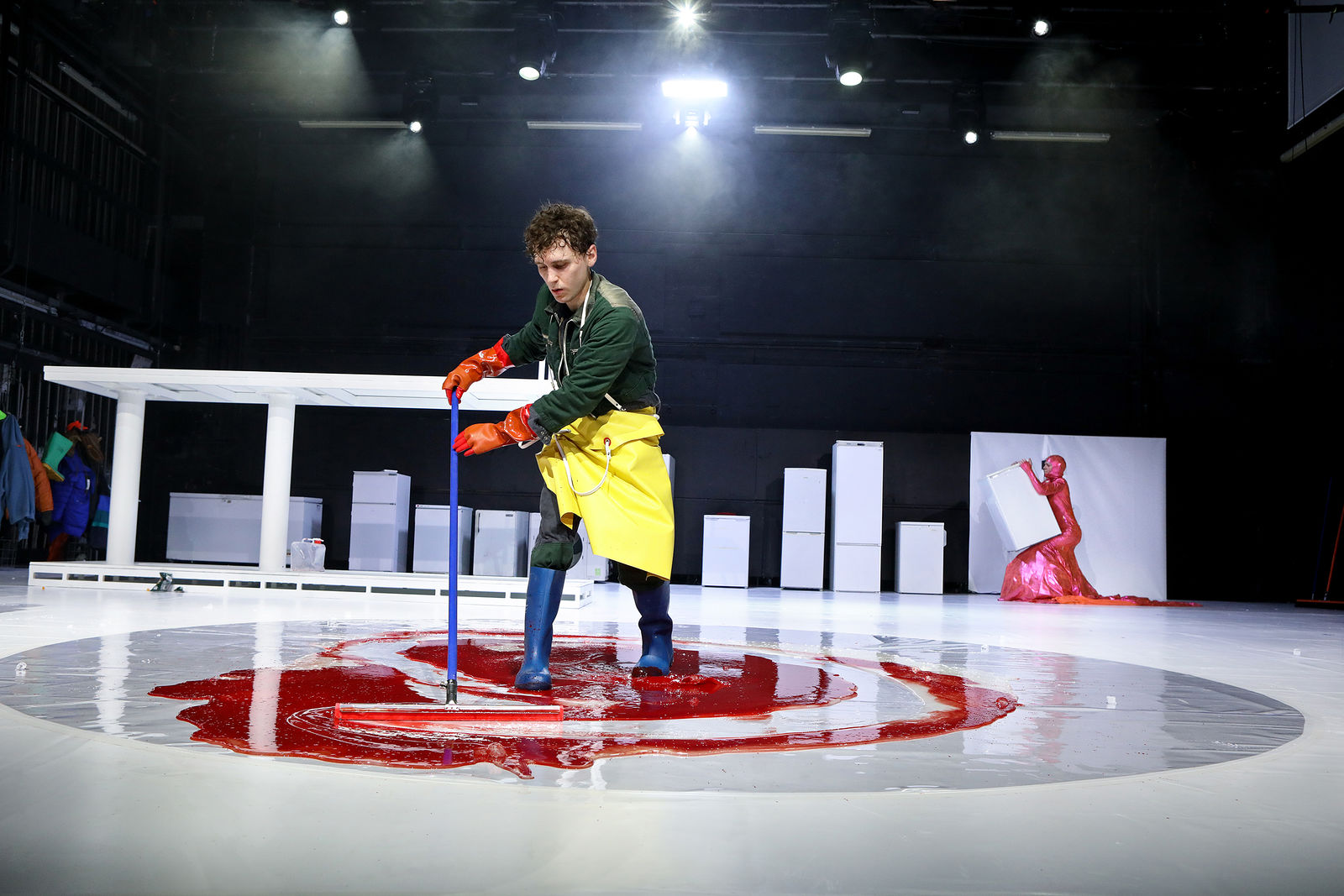
© Birgit Hupfeld
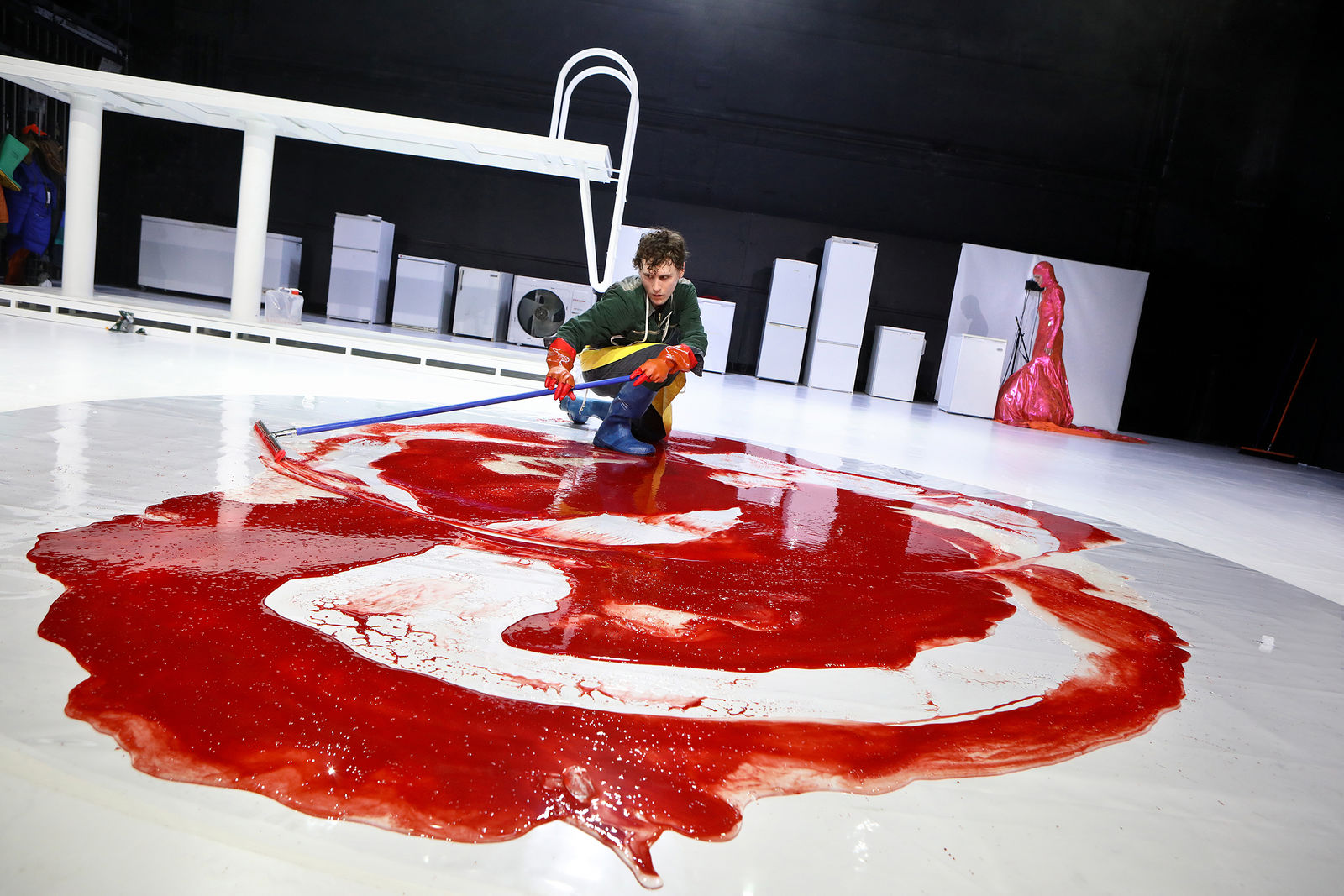
© Birgit Hupfeld
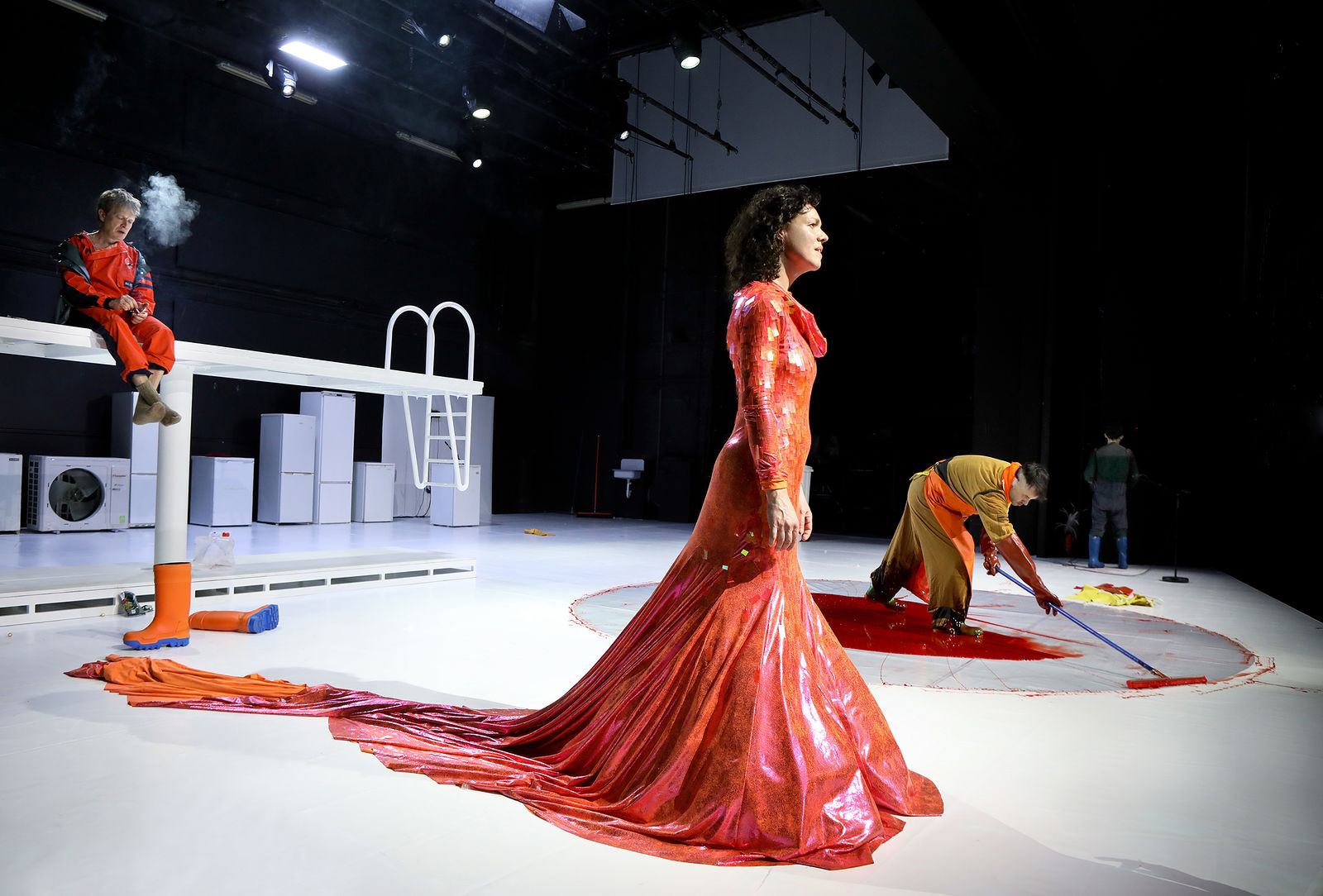
© Birgit Hupfeld
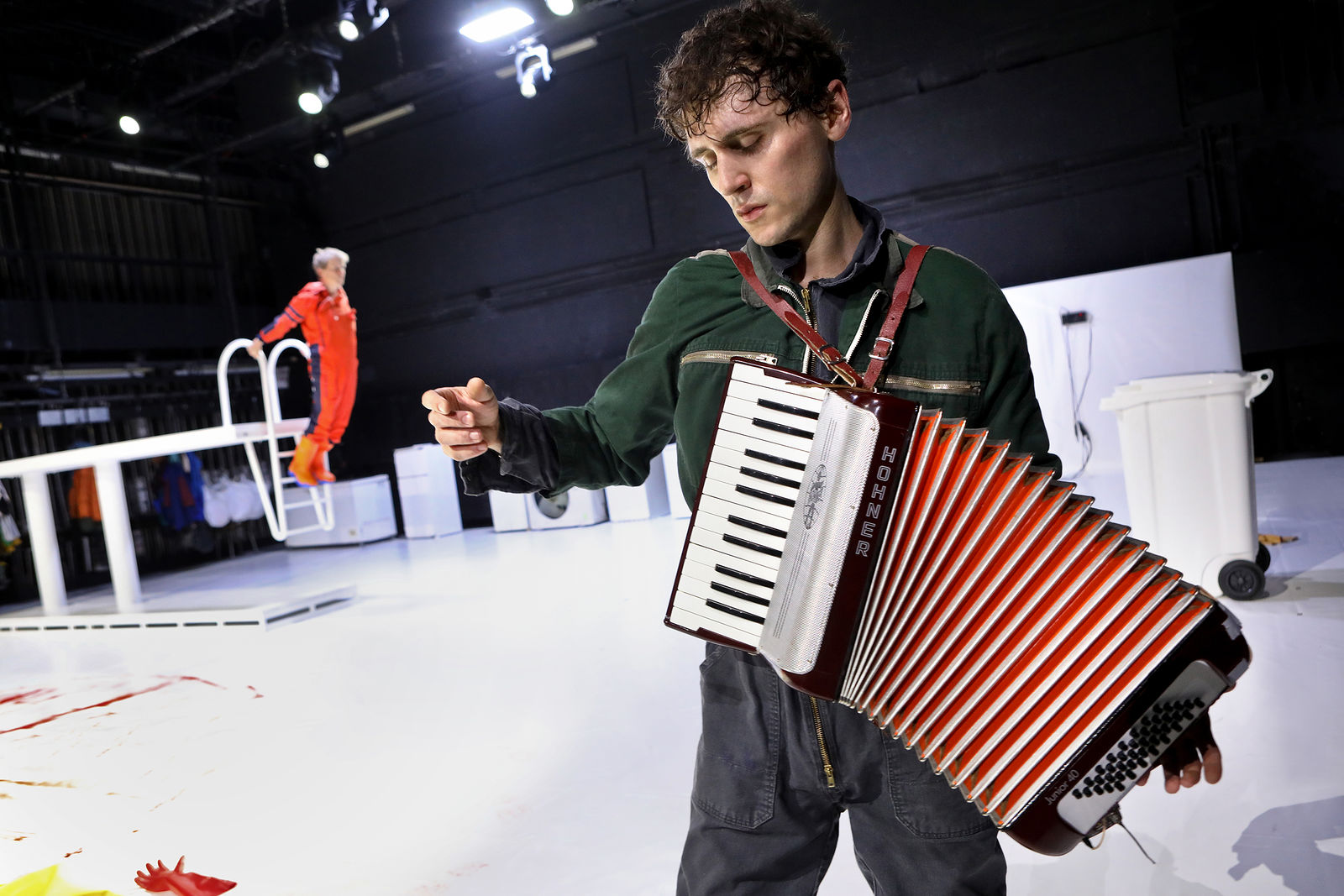
© Birgit Hupfeld
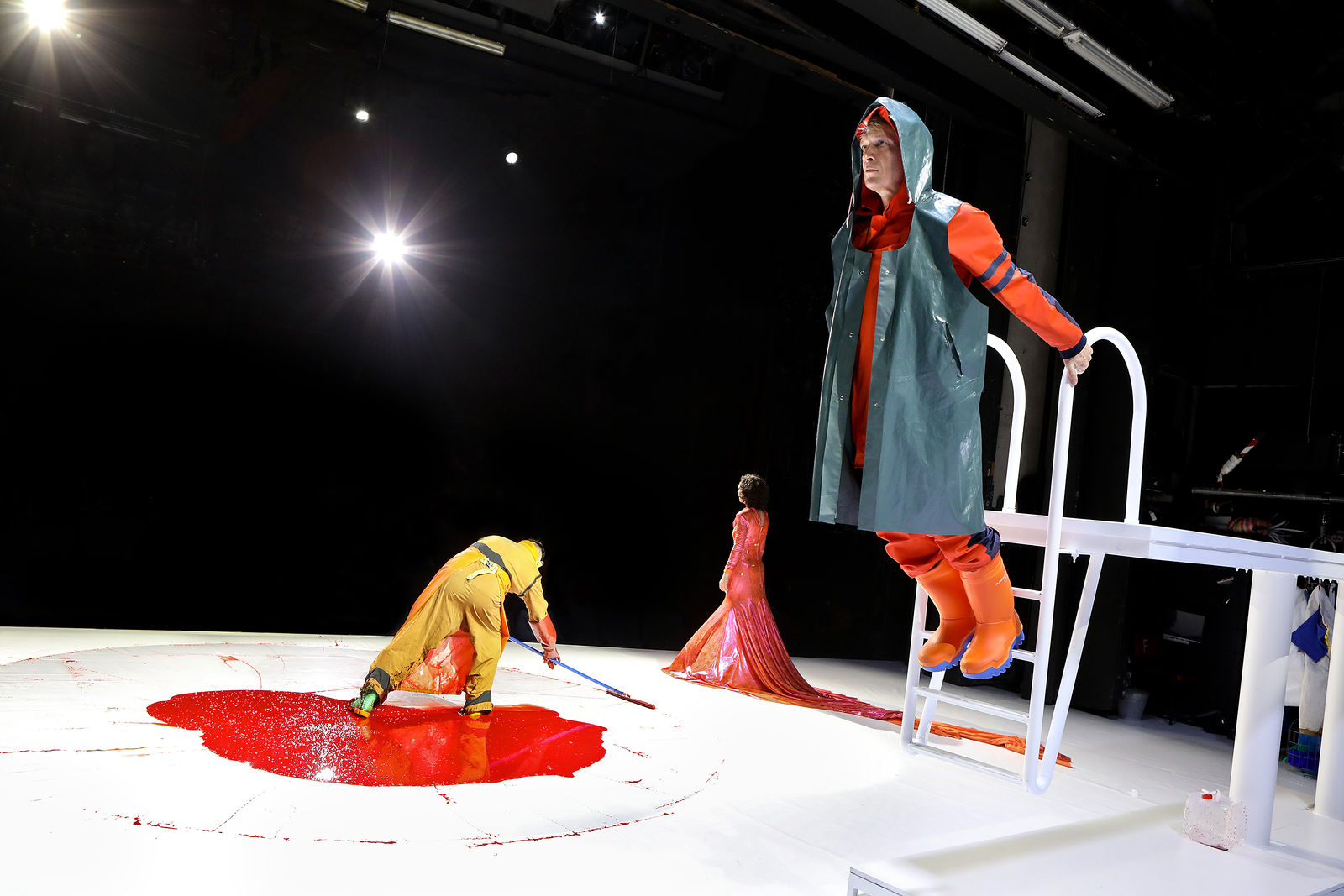
© Birgit Hupfeld
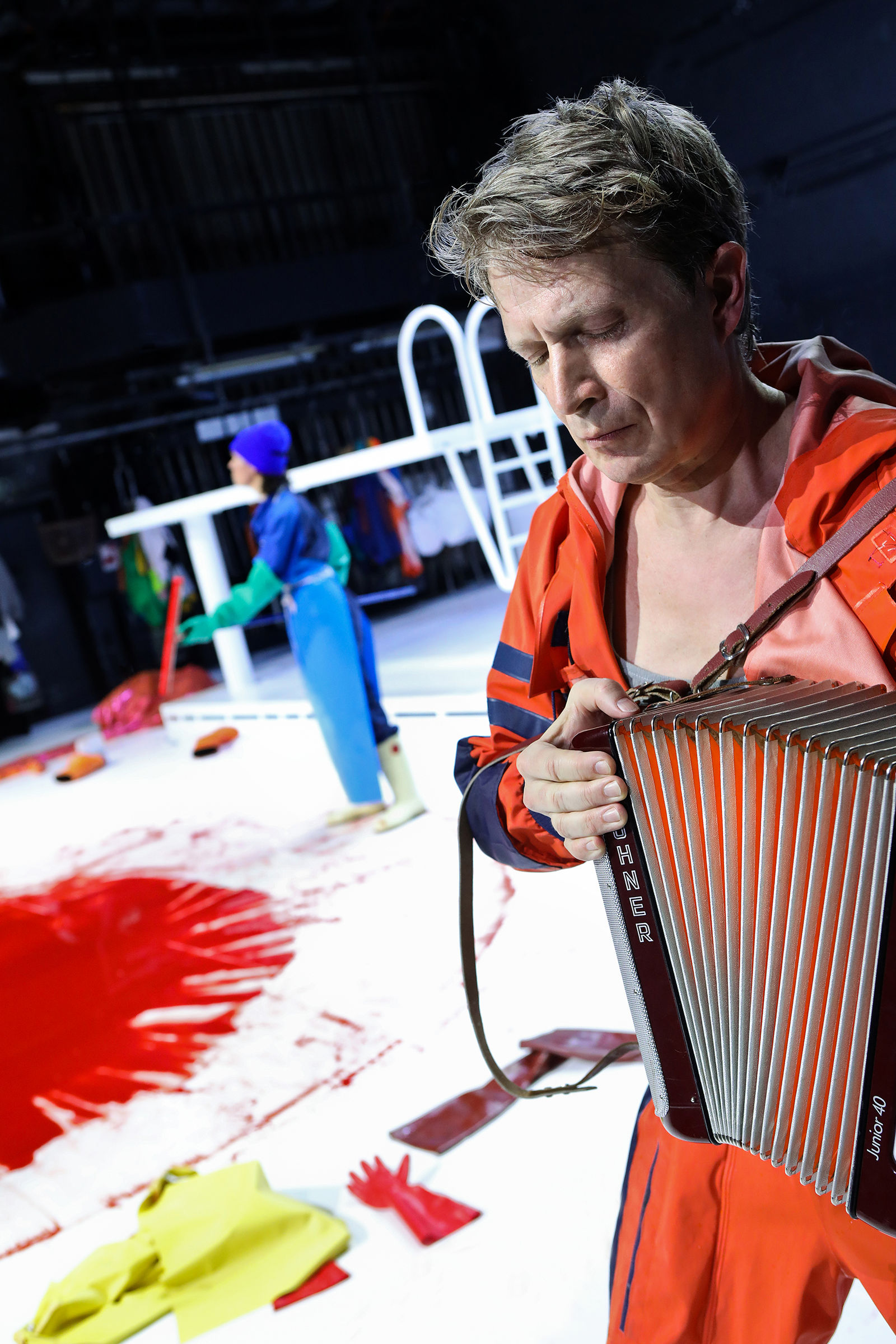
© Birgit Hupfeld
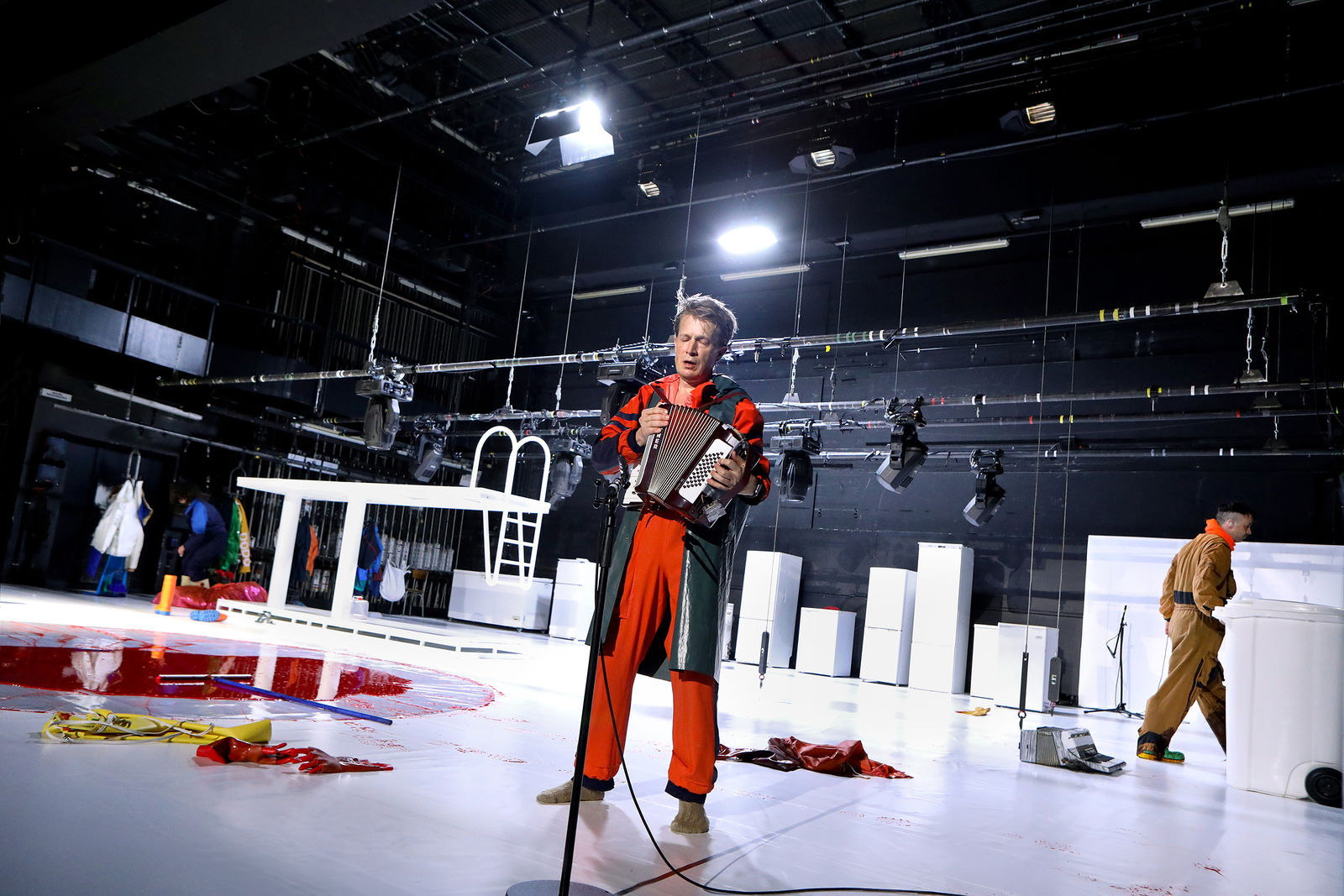
© Birgit Hupfeld
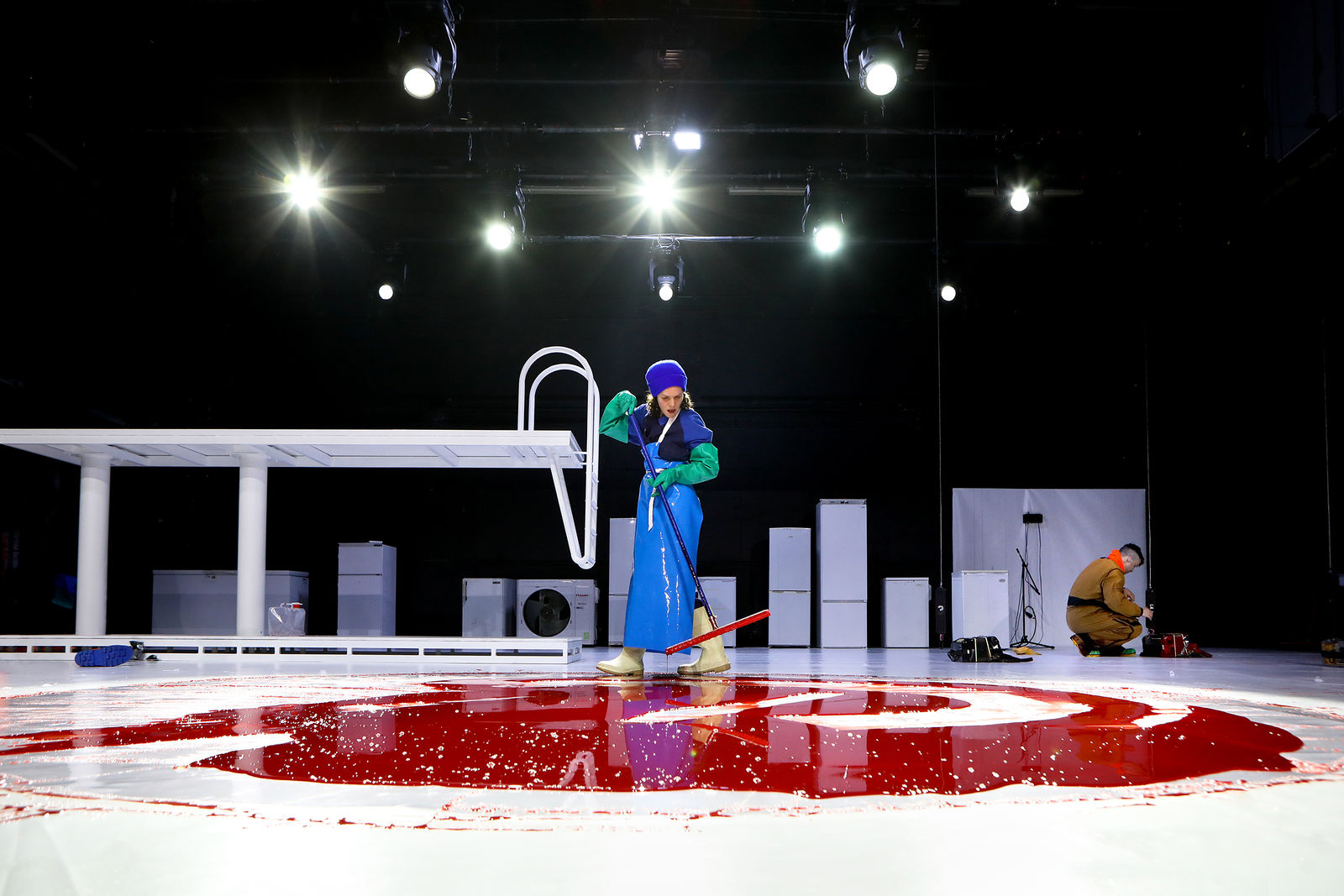
© Birgit Hupfeld
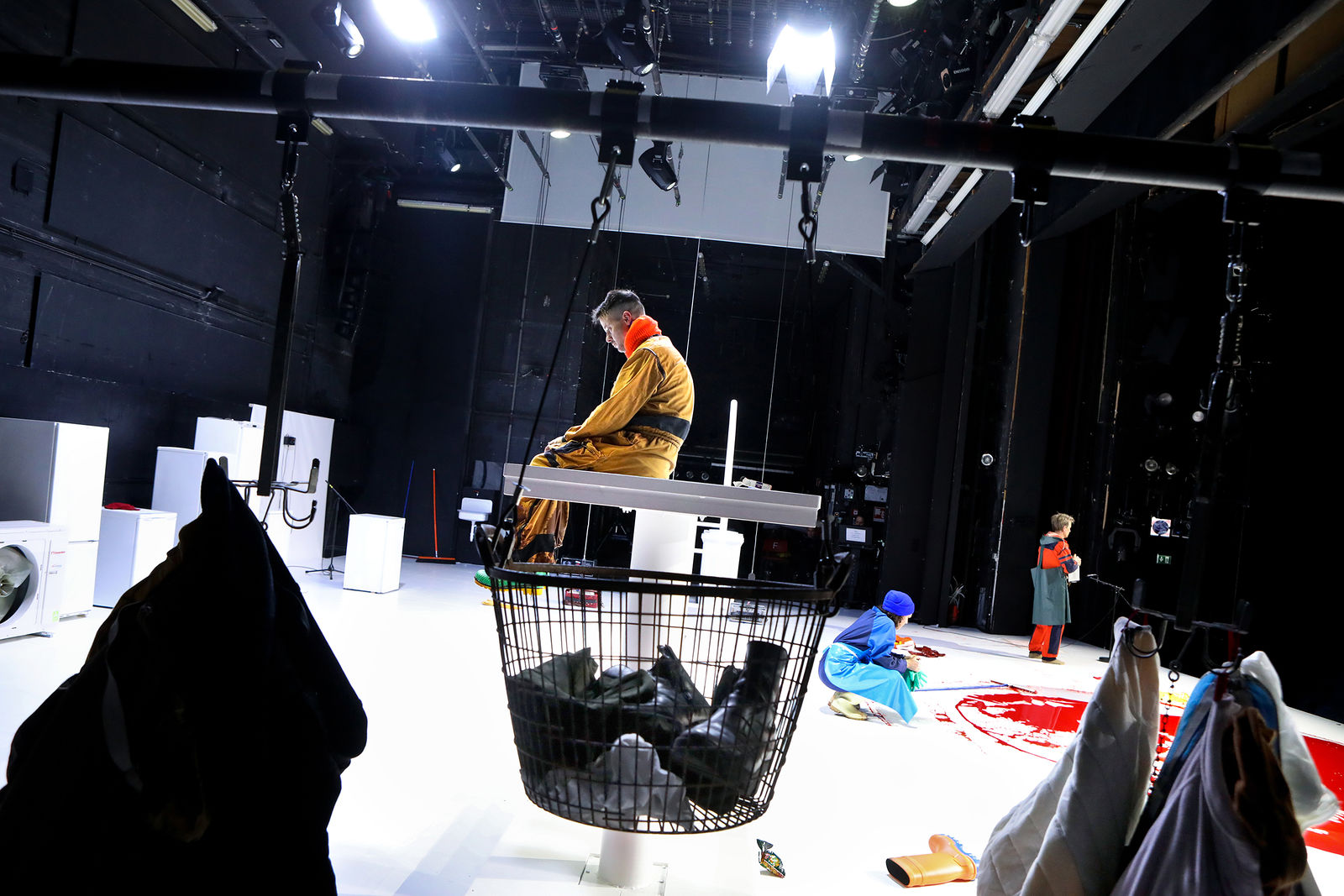
© Birgit Hupfeld
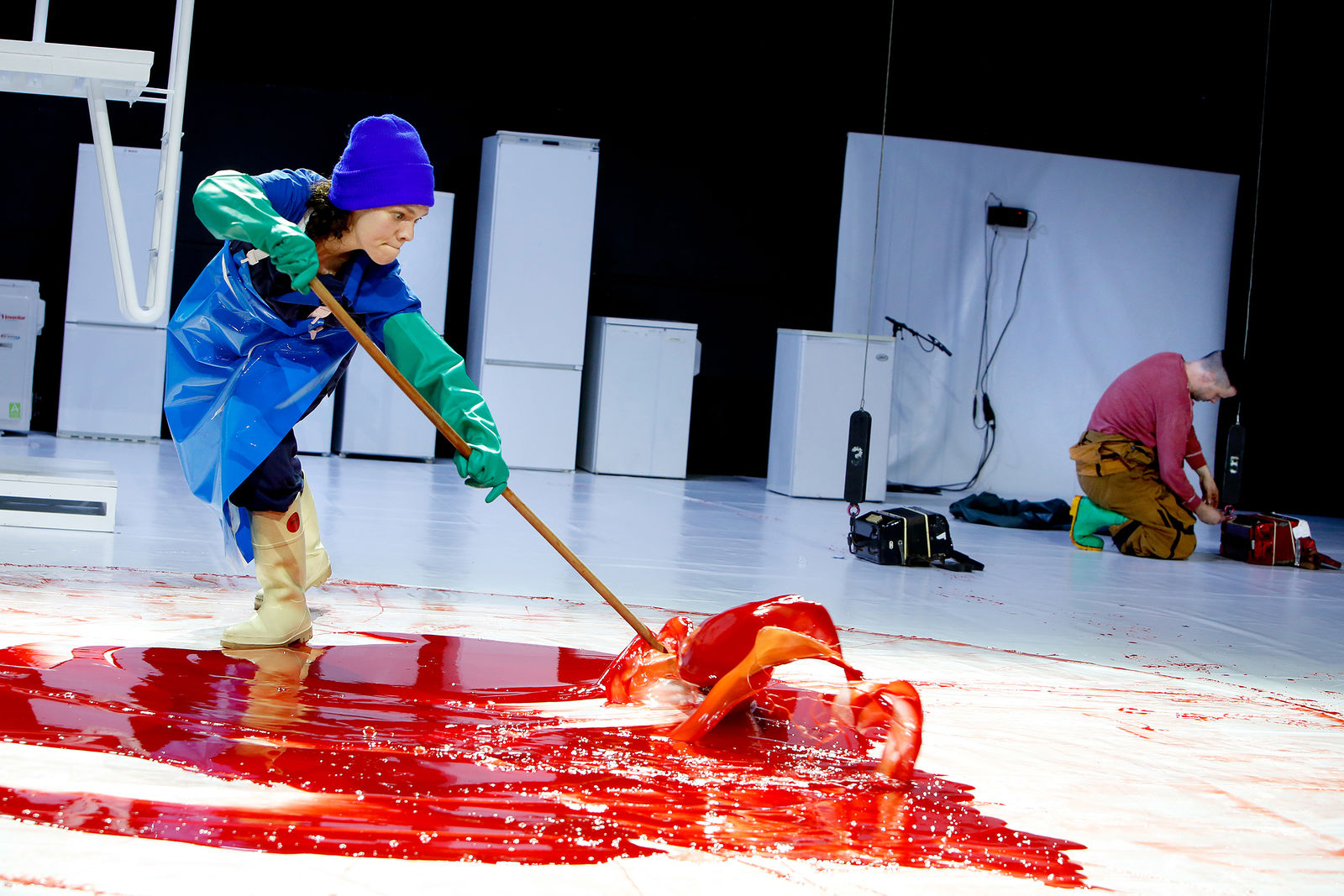
© Birgit Hupfeld
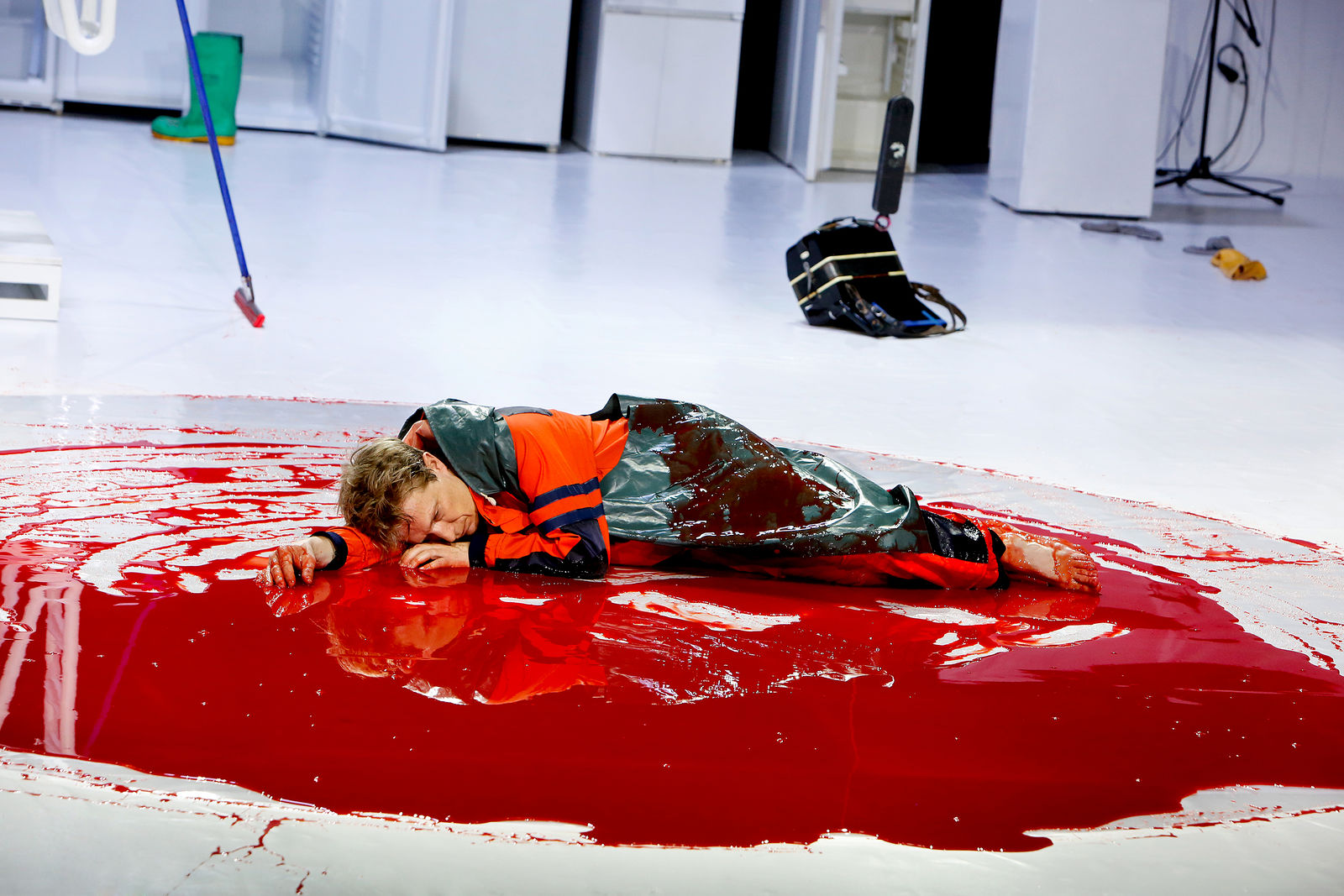
© Birgit Hupfeld
Press reviews
Press voices
Ein eindringlicher, intensiver Theaterabend zwischen Sozialdrama und Tragikomödie, für den es donnernden Beifall gibt.
Westdeutsche Allgemeine Zeitung, Sven Westernströer
Ästhetisch ist der Abend sehr sehr interessant, weil Regisseur Tom Schneider zwischenzeitlich eine Art Maschinenballett daraus macht. Die Maschinen auf der Bühne verselbstständigen sich, die Scheinwerfer beginnen im Takt der Maschinen zu tanzen – das bekommt eine ganz schräge Komik.
WDR 5 Scala, Stefan Keim
Wut, Erschöpfung, Ohnmacht. In Bochum wird daraus eine Dramaturgie, die dem gnadenlosen Automatismus mit menschlichen Ausweichmanövern begegnet.
Westfälischer Anzeiger, Achim Lettmann
Cooperations
Cooperations
Gefördert durch die RAG-Stiftung


